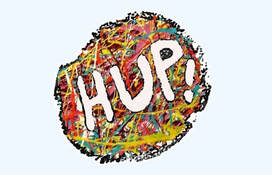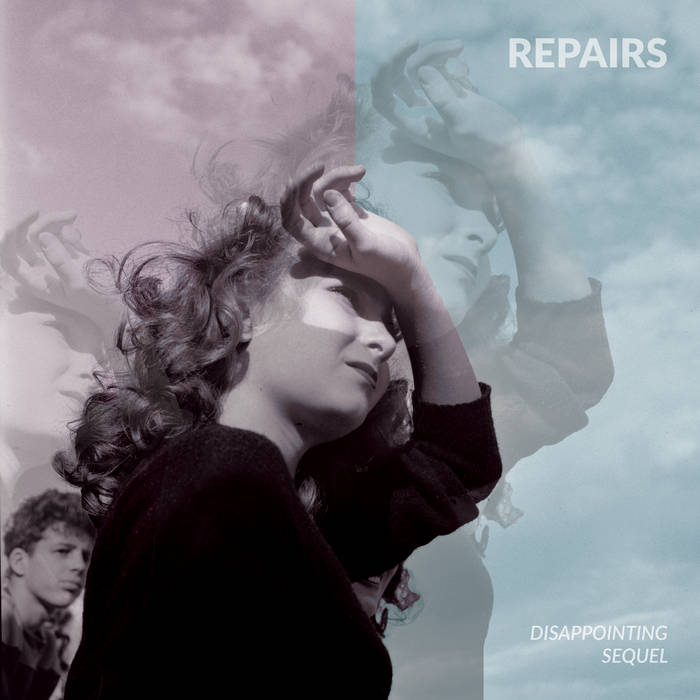|
with Ian Duggan
Repairs' new album ‘Disappointing Sequel’ was released yesterday, and they are playing Hamilton in support of this tomorrow! That's the 19th of April 2024, at Last Place, supported by Empress and Halcyon Birds. I was having a first listen as I thought about these questions, and I can tell you it sounds fantastic! I spoke with guitarist Martin Phillips about the album, self-deprecation, mechanical pocket calculators, and more!
‘Disappointing Sequel’ is your follow up to 2020s ‘Repeat, Repeat’. In that album, the themes running through it included anxiety, feeling isolated, disillusionment, searching for meaning and hope. Listening to lyrics on the new album, the band haven’t quite managed to leave these concerns behind?
If anything, I think we’ve become more anxious! We finished 'Repeat, Repeat' in early 2020, just as the pandemic was kicking off (most of it was recorded in 2019), but the majority of songs were written back in 2018. At the time we were still finding our voice and still learning who we were as a band and as songwriters. I think this album is an evolution of a lot of the ideas on the first record. Obviously the pandemic has had (and continues to have) a major impact on us (as with everyone else in the world). While a lot of the things we feel are the same, we’re a bit more confident now in the way we write songs about those feelings. There’s a different type of anger. It feels like we’re on the other side of a monumental era (despite the pandemic not actually being over). Unfamiliar, less stable and with no anchor point. Frustratingly, a lot of the issues in the wider world (as well as our own sense of dread) have continued to get worse. Some sort of Sisyphean nightmare at the ‘end of history’. I know I have different worries from what I had two years ago. Are there new themes on this album that are different from those from 'Repeat, Repeat'? We’re quite different as people than we were in 2020. While a lot of our underlying anxieties remain (and the effects of late-stage capitalism and the oversized influence of dangerous and disingenuous bigots in the political arena get worse), our personal situations have changed a lot. We play a lot less shows now than we used to, meaning that especially for Nic (bass) and I we focussed more on the studio side than the live arena (having access to the Vault and the help of Ciara and Will helped with that!). James (drums) and Fe bought a house and moved out of Auckland (as well as adding Peaches to the family), Nic changed career, and I finally found the impetus to dye my hair, paint my nails and quit my corporate job to go study audio engineering. That change in where we are on our journeys has likely influenced some of the writing, or at least some of the change of perspective from the last record. When I think of disappointing sequels, I think of movies like ‘Jaws: The Revenge’ and ‘Grease 2’. What do you think are the most disappointing sequels? On the subject of disappointing (and unnecessary) sequels, Andrew Falkous has some eloquent thoughts on the matter that are perhaps worth sharing: Future of the Left -- Robocop 4 - Fuck off Robocop More than a decade ago I was playing in a band called ‘god bows to math’ (yes, I know, it’s the American spelling - blame the Minutemen) and the drummer’s flatmate somehow came into possession of a box containing about 50 copies of the greatest disappointing sequel of all time – ‘Highlander II: The Quickening’. So everyone in our friends circle was treated to a DVD copy of this masterpiece. It gets terrible reviews but there’s something beautiful about how much it leans into ruining the original movie. Although the soundtrack is nowhere near as epic as the first film. Honourable mention has to go to the palpable disappointment generated by any sequel that fails to retain Keanu (looking at you Speed 2!). The name ‘Disappointing Sequel’, taken from a lyric in your song ‘Time Travel’, hints at a sophomore slump. Listening through the album, this definitely isn’t the case. Arising from our egalitarian roots, our New Zealand humour has tended to be fairly self-deprecating. Is this how you see the album title? As a bit of self-deprecation, but you realise this thing you’ve created is actually pretty amazing? I started calling the album that as a working title very much in the self-deprecating joke vein, but after a while it felt right. We all deal with imposter syndrome to varying degrees and I know that I definitely felt a lot of pressure to make a second album. Looking at the cliched trajectory of sophomore offerings there’s a tendency to view them as more mature, and less invigorating than debut records. I prefer the idea that a second album should double the righteous anger and energy levels. The line in the song ‘Time Travel’ is a reference to one of the overarching themes of the album - this weird feeling that a lot of the same mistakes keep being made. In the case of that song I was referring mostly to watching the same neo-conservative, disproven, and ultimately cruel ideas about trickle down economics, privatisation, and deregulation continue to echo through the corridors of the Beehive (just to note the song is mainly about how I love my wife, no matter what happens). We’re all pretty stoked with the record. I think any time we manage to finish a piece of work it generates a sense of pride. There was definitely a lot of work put in over the last two years! Track 4 is called “Math Grenades”. I had to look up what a ‘math grenade’ was; it’s an early mechanical pocket calculator, which resembled a hand grenade. What led you to naming one of your songs this, and being in New Zealand, should we in fact be calling them “Maths Grenades”? It’s another reference to one of my favourite authors - William Gibson. I actually discovered Gibson’s work through a Sonic Youth song (Pattern Recognition on Sonic Nurse), and I’ve always loved that idea of discovery when combing through liner notes and parsing lyrics. The Curta [a.k.a., the mechanical calculator] features prominently in the novel Pattern Recognition (probably my favourite book of all time), and it fascinated me in the same way that Ada Lovelace’s ideas for the analytical engine did. There’s something really fantastical about seeing computation in a physical, analogue form, especially after growing up watching the computing world shift into big tech monopolies and shady behind the scenes algorithms dressed up in a flashy digital UI. The other reference on the album is the track Map, Territory which comes from Zero History (a follow up work to Pattern Recognition).
0 Comments
Leave a Reply. |
Archives
July 2022
Categories |


 RSS Feed
RSS Feed
